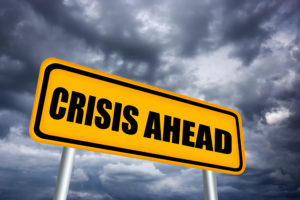By Tony Jaques
 When a crisis event is “over” it is very natural to focus on operational recovery and business continuity. But the reality is that the aftershocks from a crisis can be more devastating and costly to the organization than the original crisis itself.
When a crisis event is “over” it is very natural to focus on operational recovery and business continuity. But the reality is that the aftershocks from a crisis can be more devastating and costly to the organization than the original crisis itself.
This is what the Dutch management experts, Paul ‘t Hart and Arjen Boin, have called “the crisis after the crisis.”
Some of the greatest risk lingers post-crisis
Of course business continuity is very important, but it is a major mistake to imagine that a return to “business as usual” means the danger is over.
Read: Why Back To Business As Usual Is The Biggest Crisis Management Mistake Of All
The greatest risk from a crisis can, in fact, arise from how the organization responds following the triggering event. Indeed, longer term post-crisis events such as coronial inquests, official inquiries, prosecution, prolonged litigation and hostile media scrutiny can persist for years.
For example, after the recent devastating court judgement against BP in the wake of the Gulf of Mexico oil spill disaster, the Wall Street Journal reported that many US investors expect spill-related litigation to drag on for decades.
The almost inevitable result can be seemingly endless reputational damage.
While many organizations have a well-established crisis management process, they often lack a formal procedure to stand down the crisis team and achieve a seamless handover to the lawyers, public relations professionals and others who will address these longer-term issues.
Issue management is typically seen as a process which aims primarily at identifying potential issues early and dealing with them before they develop into crises. However it is also a very effective process and set of tools for effectively responding to the range of issues which can arise after the crisis.
For an organization to achieve best practice in crisis management, it needs to fully integrate issues management for crisis prevention. But it also needs to ensure that issues management is in place to navigate that high-risk post-crisis phase that exists long after getting back to business as usual.
Tony Jaques is an Australian-based consultant working in the areas of issues, crises and risk communication. He writes the regular e-newsletter Managing Outcomes and is author of the new book Issue and Crisis Management: Exploring issues, crises, risk and reputation (Oxford University Press, 2014)

Crisis management is one of the important elements in PR working process. As the public tend to be more serious or strict about what's happening, organizations have to deal with any issue more carefully. Stated in another way, negative comments become pervasive thus the possibility of crisis, escalated from an issue, enlarges. Many organizations, as well as the public, begin to focus on the function of PR professional after crisis takes place. However, to better settle down a crisis, it is not only apologizing or hiring a PR agency that makes sense, but also the performance or the action afterwards that really saves reputations. Crisis management can be divided into two parts. Pre-crisis Monitoring makes an issue remain an issue or shrink to nothing serious; Post-crisis Dealing, more importantly, helps organizations regain courages but has high risks making things even worse. Therefore,after a crisis, we have to concerned for every details of any dealing approach, including future actions, standby statements and media reports, etc. If there is something wrong, all you have done will get ruined, forever.
You're missing one key part of crisis management – and that's the in-crisis management. Pre and post crisis are very important, but so is managing the crisis while it's occurring. Doing this effectively is how you will get ahead of the news cycle, begin to connect with important stakeholder groups and regain control of your reputation. Once this is done effectively and the crisis has been put to bed, it's time to look at the post-crisis management or, as Tony puts it, the crisis after the crisis.
Thanks for leaving your thoughtful feedback, Eileen!